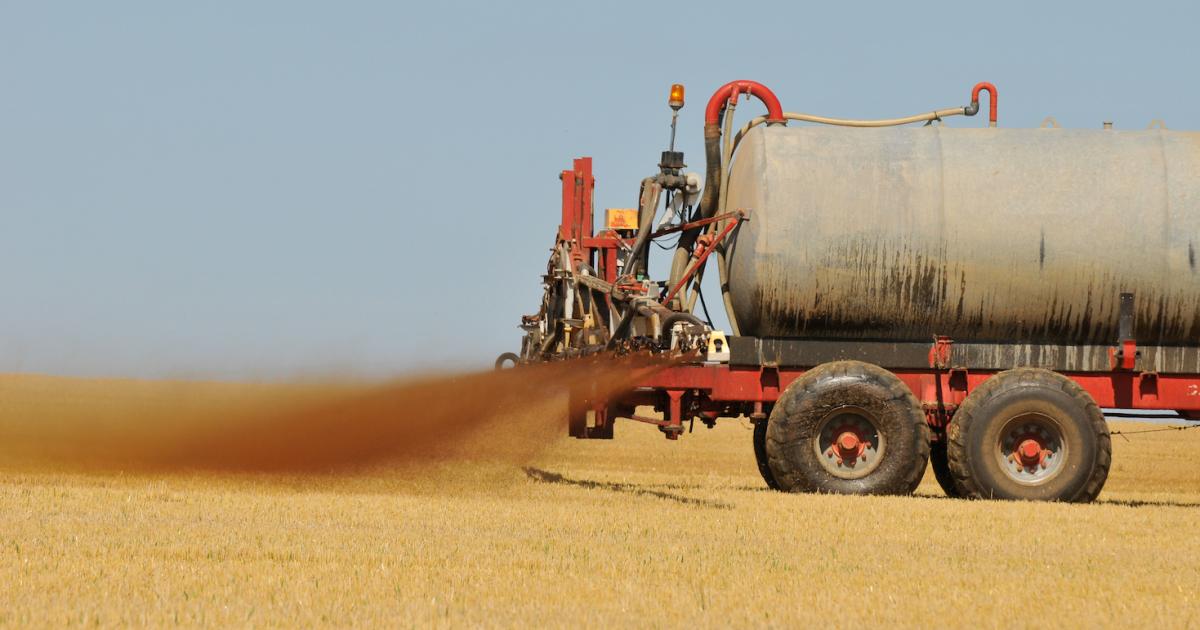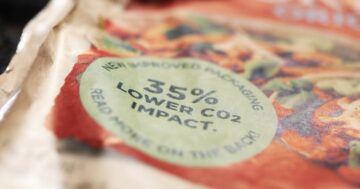
Software companies Stripe and Shopify continue to show up as early adopters of advanced carbon removal technology, through both their own investment funds and Frontier, a group of corporations that has committed more than $1 billion to purchases of these technologies.
The two companies, along with H&M Group, last week were revealed as the buyers funding $7 million in carbon removal purchases from a dozen early-stage companies — selected through the Frontier organization and chosen from more than 132 applications. “This cycle, we saw a more than 7X increase in applications proposing solutions that can store CO2 for 1,000-plus years, compared to Stripe’s first purchase cycle three years ago,” Frontier said in announcing the purchases.
The biggest disclosed contract was for 1,666 metric tons of carbon dioxide, made possible by an approach being commercialized by Vaulted Deep, a Houston-based company spun out last week by Advantek Waste Management Services, an industrial waste management company with decades of experiencing in treating sludge at oil and gas sites.
Vaulted Deep’s approach involves collecting sludgy organic waste such as animal manure, inedible food and pulpy paper and injecting it deep into wells, which can be sequestered for thousands of years. That prevents it from decomposing and emitting the potent greenhouse gas methane, said Vaulted Deep CEO Julia Reichelstein. She touted other co-benefits, such as preventing chemicals associated with these waste streams from leaching into groundwater. The technology builds on patented geologic slurry injection methods used by the parent company.
The company already has two permitted and operational injection sites: in Los Angeles County and Hutchinson, Kansas. Considerations for site selection include the layers of strata and the existence of an overlay that protects against fluid releases. The wells need to be deeper than sources for drinking water, and there need to be favorable permitting regulations, said Omar Abou-Sayed, Vaulted Deep’s executive chairman.
For context, the U.S. needs to remove at least 2 gigatons of CO2 annually to mitigate climate change. In the scheme of things, the deal announced by Vaulted Deep is a relatively small amount, but the feedstock for this approach — organic waste — is readily available.
The spinout was made possible with $8 million in seed capital from Lowercarbon Capital. Reichelstein and Abou-Sayed said the companies are being separated in order to accelerate commercialization of the carbon removal application. “We believe this is going to be one of the largest scale-ups that we’ve seen, because we need it for the Earth,” Reichelstein said.
For context, one of the biggest carbon removal purchases to date is for 315,000 metric tons — a long-term contract announced last week between direct air capture company Heirloom of Brisbane, California, and Microsoft.
The software company (also an investor) will pay an undisclosed sum for carbon dioxide removal over a “multi-year” period. Heirloom’s tech accelerates the rate at which limestone can absorb CO2 through a process powered by renewable electricity, storing the captured gas underground or in concrete. The company is behind Project Cypress, a proposed direct air capture hub that could get up to $600 million in matching funds from the U.S. Department of Energy.
Another sizable deal was announced between Amazon and direct air capture company 1PointFive, which is building its first facility in Ector County, Texas. The transaction — one of Amazon’s largest carbon removal purchases to date — calls for the tech and e-commerce company to buy 250,000 metric tons of carbon removal from the plant (called Stratos) over the next 10 years.
When it becomes operational, the site is expected to capture up to 500,000 tons of CO2 annually. The CO2 captured through this agreement will also be stored underground, using saline aquifers.
- SEO Powered Content & PR Distribution. Get Amplified Today.
- PlatoData.Network Vertical Generative Ai. Empower Yourself. Access Here.
- PlatoAiStream. Web3 Intelligence. Knowledge Amplified. Access Here.
- PlatoESG. Automotive / EVs, Carbon, CleanTech, Energy, Environment, Solar, Waste Management. Access Here.
- PlatoHealth. Biotech and Clinical Trials Intelligence. Access Here.
- ChartPrime. Elevate your Trading Game with ChartPrime. Access Here.
- BlockOffsets. Modernizing Environmental Offset Ownership. Access Here.
- Source: https://www.greenbiz.com/article/carbon-removal-startup-reduces-emissions-burying-sludgy-organic-waste
- :has
- :is
- $1 billion
- $UP
- 000
- 1
- 10
- 250
- 500
- 7
- a
- accelerate
- accelerates
- accelerating
- adopters
- advanced
- against
- ago
- Agreement
- AIR
- along
- already
- also
- Amazon
- amount
- an
- and
- Angeles
- animal
- announced
- Announcing
- Annually
- Application
- applications
- approach
- ARE
- article
- AS
- associated
- At
- available
- BE
- because
- becomes
- behind
- being
- believe
- between
- Biggest
- Billion
- both
- Brisbane
- Building
- builds
- but
- buy
- buyers
- by
- california
- called
- Calls
- CAN
- capital
- capture
- captured
- carbon
- carbon dioxide
- ceo
- chairman
- change
- chemicals
- chosen
- Climate
- Climate change
- co2
- Collecting
- commercialization
- committed
- Companies
- company
- compared
- considerations
- context
- continue
- contract
- Corporations
- could
- county
- cycle
- Date
- deal
- decades
- deep
- deeper
- Department
- Department of Energy
- direct
- dozen
- e-commerce
- Early
- early adopters
- early stage
- earth
- economy
- electricity
- Emissions
- energy
- Ether (ETH)
- executive
- existence
- expected
- experiencing
- Facility
- favorable
- First
- fluid
- food
- For
- Free
- from
- Frontier
- funding
- funds
- GAS
- get
- going
- great
- greenhouse gas
- Group
- H&M
- HTTPS
- Hub
- hutchinson
- in
- include
- Increase
- industrial
- insight
- into
- investment
- investment funds
- investor
- involves
- IT
- ITS
- jpg
- Kansas
- largest
- Last
- layers
- least
- long-term
- los
- Los Angeles
- made
- management
- matching
- methane
- methods
- metric
- million
- Mitigate
- more
- multi-year
- Need
- needs
- Newsletter
- next
- node
- of
- Oil
- Oil and Gas
- omar
- on
- ONE
- operational
- or
- order
- organic
- organization
- Other
- our
- out
- over
- own
- Paper
- parent company
- patented
- Pay
- period
- plato
- Plato Data Intelligence
- PlatoData
- possible
- powered
- preventing
- prevents
- process
- project
- proposed
- proposing
- purchase
- purchases
- Rate
- reduces
- regulations
- relatively
- Releases
- removal
- remove
- Renewable
- Revealed
- s
- Said
- saw
- scale-ups
- scheme
- seed
- seen
- selected
- selection
- Services
- she
- Shopify
- show
- site
- Sites
- sizable
- small
- Software
- Solutions
- Sources
- spun
- startup
- store
- stored
- Stratos
- streams
- stripe
- such
- tech
- Technologies
- Technology
- texas
- than
- that
- The
- their
- There.
- These
- things
- this
- thousands
- three
- Through
- to
- tons
- touted
- transaction
- treating
- Trends
- two
- u.s.
- used
- using
- want
- was
- Waste
- Water
- we
- week
- Wells
- were
- which
- will
- with
- years
- zephyrnet









